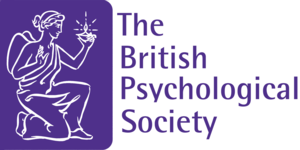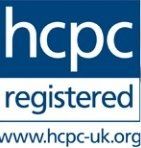Private Adult Autism Assessment within Elysian Psychology.
What is Autism?
Autism refers to individuals who are diagnosed with autism spectrum disorder (ASD),as children and have grown into adulthood. Autism is a neurodevelopmental condition characterised by differences in social communication and interaction, as well as restricted and repetitive patterns of behavior or interests.
In adulthood, individuals with autism may face various challenges related to social interactions, communication, sensory sensitivities, and managing daily routines. However, each person's experience with autism is unique; some adults with autism lead independent lives, while others may require varying levels of support and accommodations.
Many adults with autism have specific strengths, such as attention to detail, a strong focus on their interests, and unique perspectives, which can be valuable in certain professions or fields. Support services, therapies, and interventions are available to assist adults with autism in navigating daily life, fostering independence, and maximising their potential.
More information on The National Autistic Society -
What is autism
Stage 1 - Mandatory Pre-Screen Assessment
All of our autism assessments begin with a mandatory pre-screen, which is considered stage 1 of the assessment process. You will spend up to 90 minutes with your Clinical Psychologist to complete this. They will ask a variety of questions to get to know you and to find out relevant background information about you. As part of the full assessment, we gather important information about your childhood and early development. For this reason, we ask that, if possible, you bring someone with you who knew you as a child, such as a parent or another family member who knows you well. (In some circumstances, those requesting an assessment may no longer have contact with anyone who knew them as a child – this doesn’t discount you from being assessed but may mean that we need to obtain childhood information in an alternative way, e.g. considering school reports or certain self-report information about childhood functioning.
After this appointment, you will receive a letter to either offer you an appointment to complete a full Autism Assessment or a letter to advise that the Clinical Psychologist does not feel an Assessment would be helpful. If you are not offered an appointment, you will receive a letter including a working understanding of your difficulties and recommendations to help you move forward.
Stage 2 - Autism Full Assessment
Stage 2 of the process requires an in-depth period of assessment that considers both your present and historical functioning. This is split into two separate standardised assessments. The ADI-R (Autism Diagnostic Interview-Revised) takes approximately 3 hours. This focusses on your early development and how this progressed over time. This assessment is ideally completed by someone who knew you well as a child and your Clinical Psychologist may find it helpful to view any childhood health records or school reports. The ADOS-2 (Autism Diagnostic Observation Schedule, Second Edition) takes up to 90 minutes. During this session, your Clinical Psychologist will ask you to complete a number of activities and engage you in conversation on a variety of topics to look at areas such as your communication and social functioning. The above assessments are usually completed over a minimum of 2 sessions. These appointments will take place at one of our Therapy Room locations in West Bridgford.
You will have opportunities to ask questions and will be able to take as many breaks as necessary to support you through the process A diagnosis is not a medical examination. You will not be examined physically and will not be asked to provide samples, such as blood.
In some circumstances, your Clinical Psychologist may liaise with other members of our multi-disciplinary team, such as Speech and Language Therapists or Occupational Therapists, if feeling their input may be helpful to your assessment.
Assessing you and what does this look like?
The characteristics of autism vary from one person to another, but in order for a diagnosis to be made, you will usually be assessed as having had persistent difficulties with social communication, social interaction, and restricted and repetitive patterns of behaviors, activities or interests (this includes sensory differences). These difficulties will have been present since early childhood and will have affected your everyday life.
After your Assessment.
The Clinical Psychologist will provide you with a comprehensive report detailing the outcome of the assessment and whether you reach the threshold for a diagnosis of Autism. If so, the report will include a working understanding of how your autism impacts you individually, your strengths, needs, and any recommendations that should be considered to best support you.
You will be offered a feedback appointment to discuss the outcome of the assessment and to talk through any questions you may have about the report. If you do receive a diagnosis of autism, your psychologist will be able to make personalised recommendations for strategies and support that will assist you in the future. For example, they may discuss ways to create a structured routine and environment to provide stability and predictability, techniques for easing anxiety or ways to manage sensory overload. They will also suggest ideas for further intervention work, that you may consider post-assessment. For example therapies—such as psychological, speech, or occupational—which can assist you in developing social and communication skills, managing emotions, and refining daily tasks. Where Elysian are able to offer particular follow on therapies, they will provide you with further information about these at your feedback appointment.
Sometimes people are told at their feedback session that they aren't autistic, and if this is the case, then the Clinical Psychologist will provide further information about what they have observed during the assessment, give alternative explanations for any perceived difficulties and any suggestions for post-assessment support. This information will also be provided in your report.









